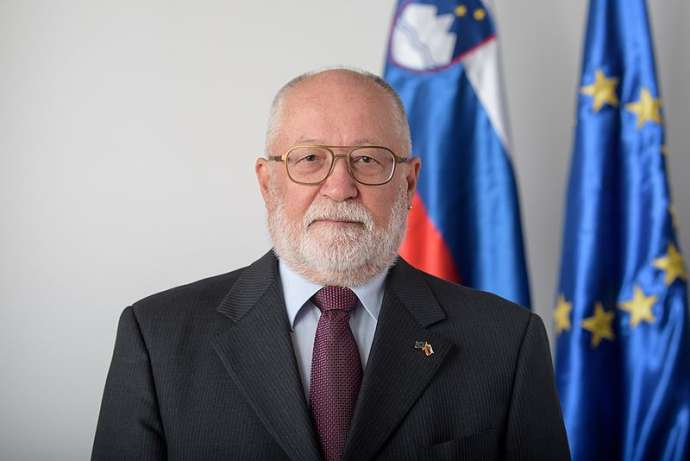STA, 15 June 2019 - Minister for Slovenians Abroad Peter J. Česnik expressed concern in an interview for the STA about nationalist sentiment expressed in Italy and Hungary. He also hopes that young generations taking over minority organisations will be able to work together even more closely than the old guard.
In recent weeks, maps indicating territorial tendencies have been shared online by an official Twitter account of the Hungarian government and a right-leaning Forza Italia member.
Soon after, another Forza Italia member proposed legislative changes to hold a population census in the Friuli-Venezia Giulia region to determine language groups.
Česnik told the STA that the latter was a political move of a politician hoping to boost his popularity. Nonetheless, it sounded an alarm indicating that the rights of the minority might be in danger.
"It is hard to comment. Our people on the other side of the border are worried. So am I. We have a very strong community there... There are other open issues, like the relocation of the [Slovenian] RAI editorial board from Rome back to Trieste."
The minority in Hungary faces different challenges. "There are few children and good bilingual primary education is a challenge." Investing in the Raba valley, the home of the Slovenian minority in west Hungary, "also demands road infrastructure investments by Hungary."
The minister is meanwhile optimistic about the change in leadership taking place in minority organisations. He believes that Ksenija Dobrila, who replaced Rudi Pavšič at the helm of the Slovenian Cultural and Economic Union (SKGZ) in Italy, is doing a job.
Meanwhile, Marjan Sturm "is showing the ropes to the young" Manuel Jug, who has taken over the Association of Slovenian Organisations (ZSO) in Klagenfurt, Austria.
"Personally, I believe that if Slovenians joined forces like the German-speaking community in South Tyrol, they could achieve more effective representation in the parliaments of both neighbours," said Česnik.
Cooperation has been getting stronger in recent years. "With years, organisations may merge. The young are our future but Slovenians beyond borders have pushed them aside for too long."
When asked about the representation of Slovenians abroad in Slovenia's National Assembly, Česnik said that the communities are represented by the parliamentary Commission for Slovenians Abroad.
The commission and two government councils, one for minorities in neighbouring countries and the other for communities across the world, ensure that the positions of Slovenians abroad are heard.
"In principle, I am all for representation. But somebody please give me a formula to do this the right way. Not to mention how much this would cost and the fact that this money could be used to the benefit of the communities."
One of the most topical issues of the government's Office for Slovenians Abroad, as Česnik's department is officially called, is the repatriation of Slovenian living in Venezuela.
"Two months ago, we received the first message expressing the wish for humanitarian aid and repatriation. So far, the office has received 21 repatriation requests. Legal grounds exist, now it is time for technical implementation, to see how we can carry this out."
Moreover, "the government must yet adopt a decree to start the repatriation process," said Česnik, who returned to Slovenia after decades in Australia.
When asked about his experience in returning to Slovenia, he said that once you decide to leave your country, there is no turning back.
"When you return, you are often seen as the rich uncle from America and at the same time you need to deal with long bureaucratic procedures, problems having your qualifications recognised, trouble with investment. Those who succeeded are the exception to the rule."
"The number of Slovenians who come back is relatively low compared to the number of young people leaving the country every year," he added.
The minister said that the department was working on legislative changes to bring the relevant laws up to date. "Legislation needs to adapt to new circumstances. Old generations are dying out and the young have different demands."
He believes that Slovenia needs a special repatriation law and a systemic approach to the process.
Nonetheless, the single biggest improvement for Slovenian communities abroad would be more funds. He hopes that the money for the department would increase from EUR 8.6 million this year to EUR 10.3 million the next.
About 80% of the funds go to the Slovenian minorities in neighbouring countries. "If we lose the language in an area we have lived in for 1500 years, we lose the area."
Touching on the upcoming annual Welcome Home event for Slovenians living abroad, Česnik said that this year it will not be organised by his department but by diaspora organisation.
"Decades ago, this was called a picnic. I still find it is a picnic where the family comes together, talks and spends time together. We also have a meeting at the National Assembly. It's a forum for official representatives of the communities to voice their comments and proposals."






